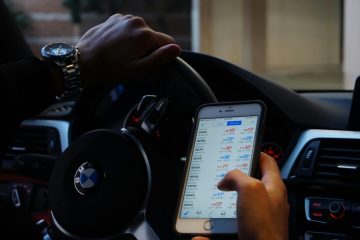Key Factors Influencing the Journey to Financial Independence

Achieving financial independence isn’t just about hitting a magic number in your bank account; it’s about gaining the freedom to live life on your terms. But how long does it really take? The answer depends on several factors, from how much you earn to how wisely you spend and invest. Ready to explore your path to financial freedom? Let’s dive in. Education can be invaluable if you’re inexperienced! Register at the-immediate-spike.com/ and learn about investing from professional education firms.
Income Levels and Earning Potential: How They Shape Your Path
Income is like the fuel for the financial independence journey. The more you earn, the quicker you can save and invest. But it’s not just about how much you make; it’s also about what you do with it.
Some folks earn modest salaries yet manage to build a strong financial foundation by living frugally and investing wisely. On the other hand, some high earners live paycheck to paycheck because their expenses grow with their income.
It’s crucial to understand that income alone doesn’t determine financial success. Think of it as having a high-performance car—without the skill to drive it effectively, you won’t get very far. Having a high income can provide a head start, but poor spending habits and a lack of financial planning can easily erode that advantage.
So, how can one maximize their earning potential? Consider pursuing higher education or gaining specialized skills. These often lead to better-paying jobs. Don’t forget about networking and negotiating for raises.
But remember, it’s not just about landing that high-paying job; it’s about managing and growing your income wisely. Could you get a side hustle or invest in assets that generate passive income?
These steps can add momentum to your journey. But don’t stress too much if your paycheck isn’t hefty—being mindful and strategic with what you have often matters more.
The Impact of Spending Habits and Lifestyle Choices
Our spending habits have a massive impact on our financial journey. Ever notice how some people seem to save a ton, even on a modest income, while others are always strapped for cash despite making much more? It often boils down to lifestyle choices and how they handle their money.
Think about this: Do you buy that daily $5 coffee, or do you brew your own? That small choice might seem insignificant, but it adds up over time. The same goes for bigger decisions like choosing a car or a home.
It’s not just about affording something; it’s about making sure those purchases align with long-term goals. Imagine trying to fill a bathtub with water while the drain is open—that’s what it’s like trying to save without controlling spending.
Small changes in spending habits can make a big difference. Could you cut back on dining out or limit online shopping splurges? Tracking every expense for a month can be eye-opening. You’ll see where your money really goes and where you might need to rein things in.
Ask yourself, do you really need the latest gadget, or can it wait? The goal isn’t to live like a monk but to spend in ways that support your path to financial independence. By being mindful and making deliberate choices, you’re setting yourself up for success.
The Role of Debt: Overcoming Financial Hurdles
Debt can feel like an enormous weight dragging you down, making the climb to financial independence steeper. It’s not just about owing money; it’s about the interest that keeps piling up, turning what seems like a manageable amount into a financial monster. But not all debt is bad.
For example, a mortgage or a student loan can be seen as an investment in your future. However, credit card debt and high-interest loans are the real culprits that can derail your plans.
Let’s face it: debt is like quicksand—easy to get into but hard to escape. The trick is learning how to manage it effectively. Start by listing all your debts and understanding the terms—what you owe, the interest rates, and the monthly payments.
Then, consider strategies like the snowball method, where you pay off the smallest debts first, or the avalanche method, targeting high-interest debt. Each small victory can build momentum, boosting your confidence and reducing financial stress.
Don’t forget to look at debt from a different angle too. Sometimes, consolidating debts into a lower-interest loan might be a good idea, or maybe even speaking with a financial advisor could help you craft a plan tailored to your situation.
The key here is not to bury your head in the sand. It’s about facing the music, making a plan, and sticking to it. Sure, it might take time, but every step you take is progress. Ask yourself: What small action can I take today to reduce my debt burden?
Conclusion
Reaching financial independence is a journey, not a sprint. It involves a mix of smart planning, disciplined saving, and strategic investing. No matter where you start, small steps can lead to big changes. So, stay committed, adapt to life’s twists and turns, and remember—the sooner you start, the closer you’ll get to living life on your own terms.


